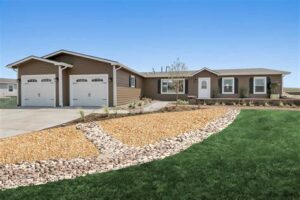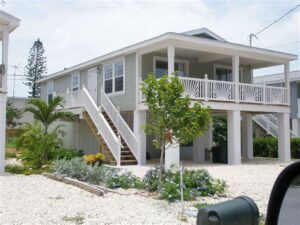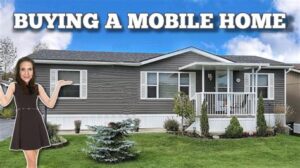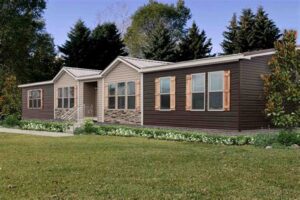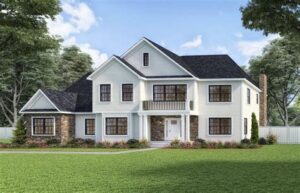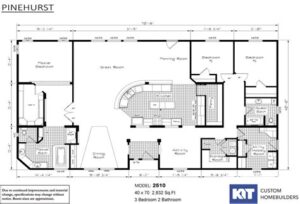modular homes denver co, Discover the essentials of modular homes in Denver, including benefits, financing options, and future trends, to find the perfect design for your needs.Introductory Paragraph:
In the vibrant city of Denver, CO, a new trend in home construction is rapidly gaining traction: modular homes. These innovative dwellings offer a unique blend of affordability, sustainability, and customizable design, making them an appealing choice for many prospective homeowners. As Denver continues to grow and evolve, understanding the benefits and opportunities associated with modular homes has never been more essential. This article delves into what modular homes are, explores their advantages in the Denver market, and provides guidance on financing and selecting the right design for your lifestyle. Whether you’re a first-time homebuyer or looking to downsize, modular homes present a modern solution to your housing needs in the Mile-High City. Join us on this journey into the future of homebuilding in Denver, CO.
Understanding Modular Homes: A Brief Overview
Modular homes are pre-fabricated structures built in sections or modules in a factory setting, which are then transported to the building site for assembly. Unlike traditional homes that are constructed entirely on-site, modular homes are made to conform to local building codes and regulations, ensuring they meet the same standards as conventional builds.
The construction process of modular homes allows for reduced construction time and often results in cost savings, as many components are manufactured simultaneously and quality is maintained throughout the building process. Furthermore, since they are built in a controlled environment, weather-related delays are minimized, enabling more predictability in project timelines.
Once the modules arrive at the site, they are placed on a foundation and secured together, making the assembly process quick and efficient. Homebuyers can choose from a variety of layouts, designs, and finishes, giving them flexibility while ensuring their new home meets their unique preferences and requirements.
It’s also worth noting that modular homes can be built to be energy-efficient, using modern building techniques and materials that contribute to a lower environmental impact compared to traditional construction methods. This makes them an appealing option for eco-conscious buyers in Denver and beyond.
Benefits Of Modular Homes In Denver, CO
Modular homes offer a variety of advantages, especially for those seeking sustainable, efficient, and customizable living spaces in Denver, CO. Here are some key benefits:
- Cost-Effective: Building modular homes can be significantly less expensive than traditional homes due to streamlined construction processes and reduced labor costs.
- Time Efficiency: Modular homes can be constructed in a matter of weeks rather than months, allowing homeowners to move in sooner, which is particularly appealing in the competitive Denver housing market.
- Customizability: With modular construction, buyers can choose from a variety of designs, layouts, and finishes to suit their personal style and preferences.
- Quality Control: Since modular homes are built in controlled factory environments, they often have higher quality standards and fewer defects compared to traditionally built homes.
- Energy Efficiency: Many modular homes are designed with energy efficiency in mind, which is a significant benefit for those conscious of utility costs and environmental impact.
- Durability: Built to withstand transportation and installation, modular homes are often more durable and resilient than conventional homes.
- Reduced Waste: The controlled manufacturing process of modular homes typically results in less waste compared to traditional construction methods, making them a more environmentally friendly option.
- Community Friendly: Modular homes can easily adapt to various community standards, and their design flexibility can harmonize well with diverse neighborhood aesthetics.
Overall, choosing modular homes in Denver, CO, not only offers a smart solution for homebuyers but also provides an array of advantages that address both financial and lifestyle needs.
Choosing The Right Modular Home Design For Your Needs
When it comes to selecting the perfect modular home, the design you choose is crucial for achieving both functionality and aesthetics. There are several important factors to consider to ensure that your modular home meets your specific needs and lifestyle.
- Space Requirements: Consider the number of bedrooms and bathrooms you need, as well as additional living spaces like a home office or a play area for children. Modular homes come in various sizes, so it’s essential to identify your requirements early on.
- Customization Options: Many manufacturers offer customizable plans that allow you to select layouts, finishes, and features that suit your personal taste. Explore the different customization options available to make your modular home truly yours.
- Style Preferences: Modular homes are not limited to one architectural style. You can find modern designs, traditional looks, or even unique contemporary styles. Decide on the aesthetic that appeals to you and your family.
- Energy Efficiency: Look for designs that incorporate energy-efficient features, such as solar panels, energy-efficient windows, and high-quality insulation. This will help you save on utility costs in the long run.
- Future Expansion: If you anticipate needing more space in the future, consider a design that allows for easy expansion. Whether it’s adding an extra room or extending your living area, planning ahead can save you time and resources.
The right modular home design will not only reflect your personal style but also adapt to your changing needs over time. By carefully considering these factors, you can make a well-informed decision when choosing your ideal modular home in Denver, CO.
How To Finance Your Modular Home In Denver
Financing your modular home in Denver can be a straightforward process if you come prepared. Understanding the various financing options available will help you make informed decisions tailored to your financial situation.
1. Traditional Mortgages
Many homebuyers opt for conventional mortgages to finance their modular homes. These loans typically require a 20% down payment but can vary based on lender requirements. It’s essential to shop around and compare interest rates from different banks and lenders.
2. Construction Loans
If you’re purchasing a modular home that is not yet built, consider a construction loan. This loan typically covers the cost of both land acquisition and home construction. Borrowers often secure a lower interest rate but need to convert the loan to a mortgage once the home is completed.
3. FHA Loans
The Federal Housing Administration (FHA) provides loans that are particularly beneficial for first-time homebuyers. FHA loans have lower credit score requirements and allow for a down payment as low as 3.5%, making them an attractive option for financing a modular home.
4. Personal Loans
Some buyers may consider personal loans as an alternative to traditional financing. However, these loans typically have higher interest rates and shorter repayment terms. It’s crucial to evaluate if this option aligns with your financial goals.
5. Manufacturer Financing
Many modular home manufacturers offer financing options directly to buyers. These loans can often be more accessible and come with favorable terms, streamlining the process. Always review the terms to ensure they align with your budget.
6. Credit Unions and Local Banks
Credit unions and local banks often provide competitive loan rates and personalized service. They may be more flexible with their requirements compared to larger financial institutions, making them worth considering for your financing needs.
7. Down Payment Assistance Programs
For qualifying buyers, various down payment assistance programs are available in Denver. These programs can help alleviate the financial burden of securing a down payment on a modular home, enhancing affordability.
8. Working with a Mortgage Broker
A mortgage broker can help you navigate the various financing options available. They can assist in comparing rates from multiple lenders and provide advice tailored to your specific financial situation, simplifying the mortgage process significantly.
Financing a modular home in Denver, CO, involves exploring various options, from traditional mortgages to manufacturer financing. Being informed about the available alternatives will enable you to make confident choices that fit your lifestyle and budget.
The Future Of Modular Homes In Denver, CO
As the demand for affordable and sustainable housing continues to rise, the future of modular homes in Denver, CO, looks increasingly promising. These homes, which are constructed off-site and assembled on location, provide an innovative solution to various housing challenges experienced in the area.
One of the key trends shaping the future of modular homes is the growing emphasis on sustainability. As climate change becomes a significant concern, more manufacturers are designing modular homes with eco-friendly materials and energy-efficient systems. This shift not only benefits the environment but also reduces utility costs for homeowners.
Moreover, the technology surrounding modular homes continues to advance. With improvements in building techniques, homes are now more customizable and durable than ever before. This allows buyers in Denver to choose designs that fit their personal styles while ensuring that their homes can withstand Colorado’s diverse weather conditions.
Urban infill development is also becoming a popular strategy in Denver. As land becomes scarcer, modular homes offer a solution for maximizing available space. They can be built on previously underutilized lots, making it possible to address housing shortages in more densely populated areas.
As the stigma surrounding modular homes diminishes, more people are recognizing their potential. Local governments and builders are increasingly seeing the value in these structures, which may lead to more supportive regulations and financing options tailored specifically to modular home buyers in Denver.
The future of modular homes in Denver, CO, is bright, marked by sustainability, technological advancements, urban development strategies, and a growing acceptance among the general population. This combination of factors positions modular homes as a viable solution to meet the increasing demand for quality, affordable housing in the region.
Frequently Asked Questions
What are modular homes?
Modular homes are pre-fabricated structures that are built in sections or modules in a factory setting and then transported to the site for assembly.
Why choose modular homes in Denver, CO?
Modular homes in Denver offer a range of advantages, including faster construction times, energy efficiency, and customizable designs tailored to the local climate and lifestyle.
How does the building process of modular homes work?
The process begins with designing the home, followed by off-site construction of modules. Once the modules are ready, they are transported to the building site and assembled on a permanent foundation.
Are modular homes as durable as traditional homes?
Yes, modular homes are constructed to meet or exceed local building codes and are designed to withstand the same environmental stresses as traditional homes.
What is the average cost of modular homes in Denver, CO?
The cost of modular homes in Denver can vary widely depending on size, features, and location, but they generally range from $100 to $250 per square foot.
Can modular homes be customized?
Absolutely! Modular homes provide a wide range of customization options, from floor plans and layouts to finishes and fixtures, allowing homeowners to create their ideal living space.
What financing options are available for modular homes?
modular homes denver co, Many lenders offer financing options for modular homes similar to traditional home loans, including mortgages and construction loans. It’s essential to consult with a mortgage advisor for specific requirements.
